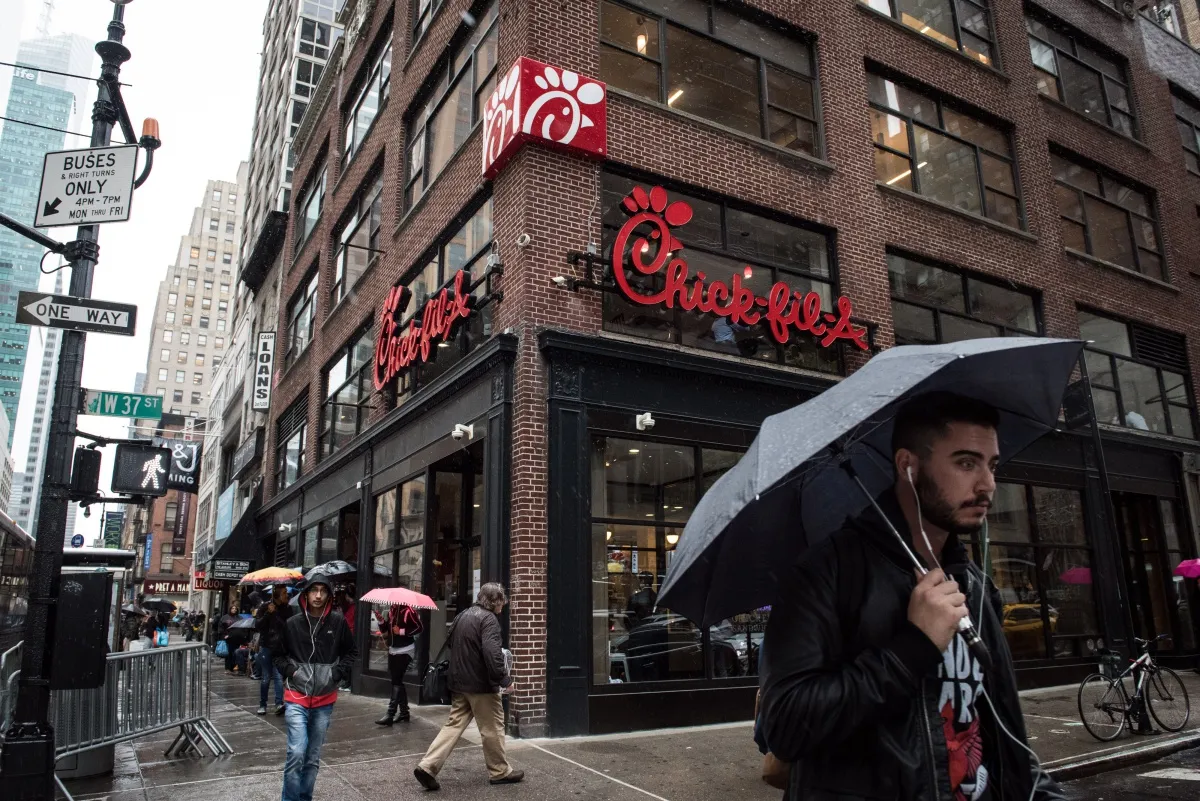Let me be clear: I love Chick-fil-A’s food. I also hate Chick-fil-A. Does this make sense? Walk with me. Upon reading about Chick-fil-A’s entrée into the streaming wars (see what I did there? Let me cook), I found myself in a profound sense of dread.
According to an exclusive from Deadline, America’s top chicken shop is diving head-first into content, including a family-friendly game show from the producers behind NBC’s The Wall. There are also whispers of scripted projects and animation. Armed with ambitious budgets, reportedly around “$400,000 per half-hour” for unscripted content, it almost makes you forget about the polarizing political stances and weird controversies, right?
No? Yeah, that’s the thing. Let’s run down the foolishness. Let’s see: Back in 2012, CEO Don Cathy publicly opposed same-sex marriage, which sparked various boycotts and protests. In 2017, tax filings revealed continued donations to groups with anti-LGBTQ+ stances. (They would later revise charitable giving policies to focus on education, homelessness, and hunger.) Multiple lawsuits came to light, citing racial discrimination and discrimination against employees based on sexual orientation. There’s a whole Wikipedia page called “Chick-fil-A and LGBT people.”
There are more, but we agree that this is more than enough. Chick-fil-A’s leap into streaming isn’t just a fast-food chain with money to burn. It’s a concerning step toward being one of those weird, dystopian vertical integration machines. We’ve completely jumped the shark where the people in the commercials now desire more than their million-dollar 30-second spots. They want more data and more of your discretionary dollars, of course.
This said, I’m only slightly less concerned about data collection than the idea that “The Chick-fil-A Show, starring the highly problematic Chick-fil-A,” is coming to our streaming platforms. We generally like it more when our problematic favorites stay in their lanes; it makes consumption of their product more tenable. For example, brands like Nike and Gap have long been accused of sweatshop conditions without losing their popularity. We don’t really know what’s in McDonald’s’ meat. They say it’s “100% real beef with no fillers, additives, or preservatives,” but that doesn’t mean it’s not just cow hooves, noses, and ears mashed into a patty.
Then, there’s Apple, a company that has also long been accused of bringing its products to the market through horrible working conditions. But Apple’s move into content made sense, given their trade. However, brands not initially aligned with content risk making programming and advertising indistinguishable—the product placement would not be part of the show; it is the show.
But it’s not entirely foreign; there’s some unusual calling back to the past. Recall that from the Forties through the Fifties, during the first Golden Age of television, there were shows like Kraft Television Theatre (1947-1958), Colgate Comedy Hour (1950-1955), and Texaco Star Theater (1948-56). The hosts would often pitch the products directly—during the show. Sponsors had significant control over the content because they knew they were paying the bills.
So there, unfortunately, is some precedent, but the backward march isn’t pretty. What does Chick-fil-A making a TV show even look like? It feels like we could be getting Real World from a Southern Baptist church: “Strangers picked to attend in a church … to find out what happens … when Christians stop being polite … and start reading only from the Old Testament.”










Published: Aug 27, 2024 02:19 pm